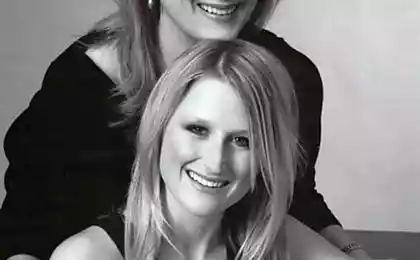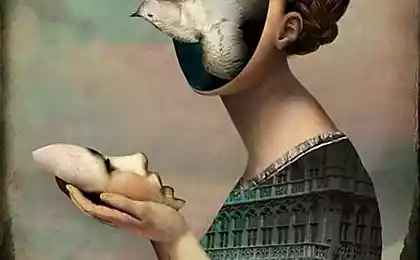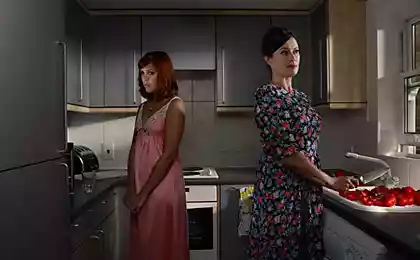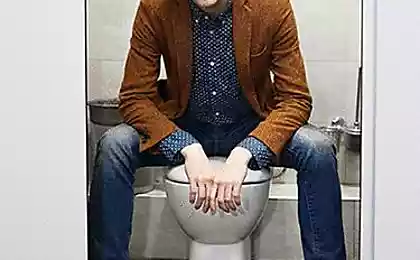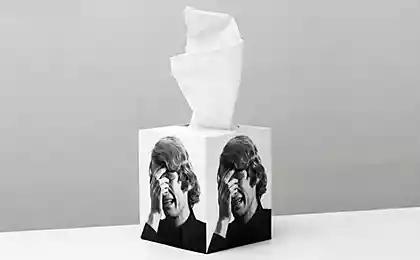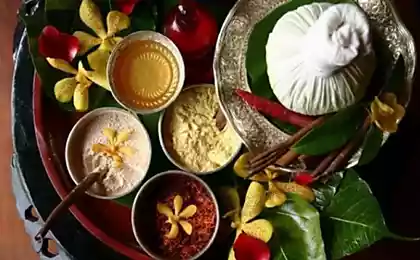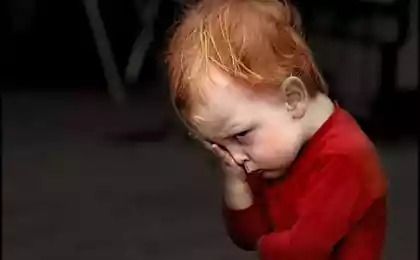774
When shame tastes like a mother's care
The flow between the little girl and her mother must be one-way, constantly guiding support from mother to daughter. Needless to say that girls are completely dependent on the physical, mental and emotional support of their mothers. However, one of the many facets of the mother wound is the General trend, when the mother is inappropriately dependent on the mental and emotional support provided to her daughter. This role reversal is extremely harmful to daughter, providing a long-lasting impact on her self-esteem, confidence and sense of self-worth.
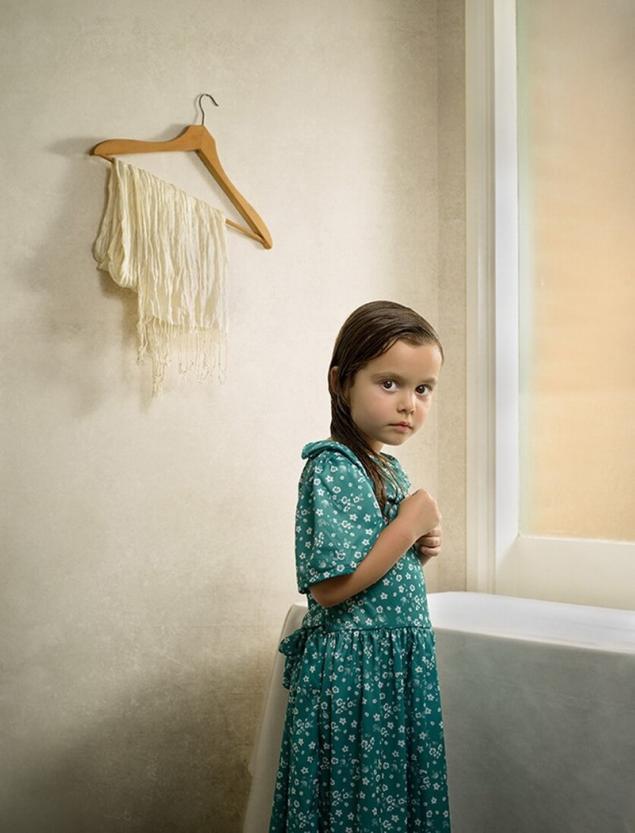
Alice Miller describes this dynamic in the "Drama of the gifted child". Mother giving birth to a child, may unconsciously feel like she finally has someone who will unconditionally love her, and begin to use the baby to satisfy his own needs that were unmet from her childhood. Thus the child is the mother's projection of his mother. This puts the daughter in an intolerable situation for her where she is responsible for the welfare and happiness of her mother.
And then a young daughter had to suppress their own needs arising in the process of its development to meet the emotional needs of the mother.
Instead of having to rely on the mother as on a secure emotional base for research, from the daughter, it is expected that she will be the base for your mother. Daughter vulnerable and dependent on his mother to survive, so she has little choice: either to obey and meet the needs of the mother or to some extent to rebel against it.
When a mother gives her daughter adult roles like associate partner, best friend or therapist, she is exploiting her daughter.
When the daughter asked to act as emotional support for her mother, she can no longer rely on his mother to the extent required to meet its own age-specific needs.
There are several options how the daughter might react to this trend:
In this case, mothers compete with their daughters for the right to maternal custody.
Thus they broadcast the belief that maternal care or love is not enough at all. Girls grow up with the belief that love, approval, and recognition are very few, and to earn this, you need to overstrain. Later, in adulthood they attract into your life situations again and again, losing this template. (Many of these dynamics also affect boys, too.)
Daughter, which hung parenthood, deprived childhood.
In this case, the daughter does not get the approval of personal identity, she gets it only as a result of performing a function (to ease her mother's pain).
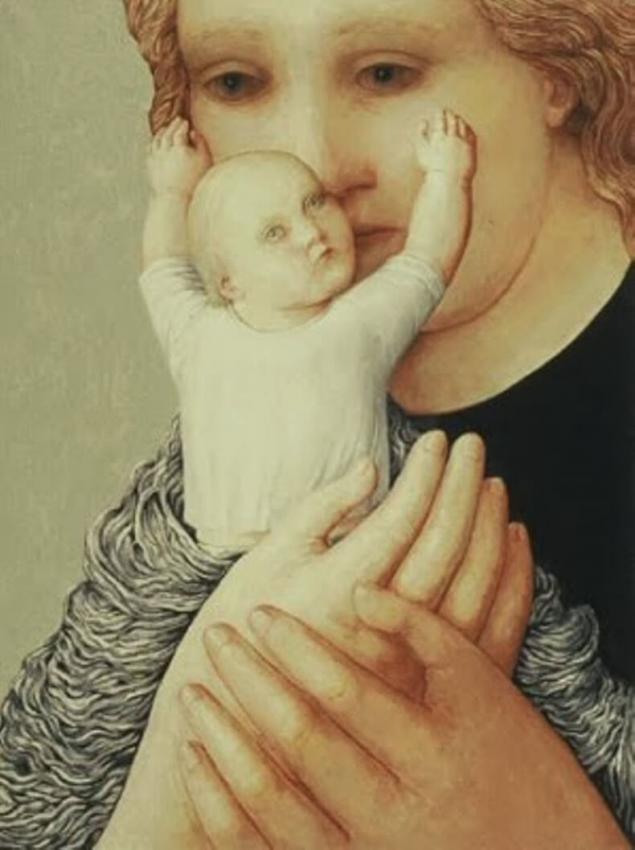
Mothers can expect from their daughters that they will listen to all of their problems, and even ask your daughters comfort, and care to cope with their fears and worries of an adult. They can expect from daughters, that those to rescue them from problems, to deal with the mess in their lives or with their emotional disorders. Daughter can constantly be involved as a mediator or problem solver.
These mothers transmit to their daughters that they are like mother – a weak, overburdened and unable to cope with life. For my daughter this means that she needs arising in the course of its development, excessively overload the mother, so the child begins to blame himself for the fact of its existence. The girl is therefore in the belief that she is not entitled to its own needs, has the right to be heard or approved as it is.
Daughter, where hung the parental role, can cling to this role and in adult life because of the many secondary benefits. For example, a daughter can get approval or praise only when she plays the role of a warrior in the life of the mother or the mother of the Savior.
A statement of your own needs can threaten rejection or aggression on the part of the mother.
As they grow older daughter may be afraid that the mother is too easy to unsettle, and because of this fear so she can hide from his mother the truth about his own needs. The mother can play this, falling into the victim role and forcing a daughter to consider himself a villain, if she dares to declare their own separate reality. Because of this, my daughter may be an unconscious belief "I am too much. My true self hurts other people. I'm too big. I need to stay small to survive, and to be loved."
While these daughters may take the projection of the "good mother" from their mothers, sometimes they can be projected and the image of a bad mother. For example, this may occur when the daughter is ready to separate emotionally from the mother as an adult. The mother may unconsciously perceive the separation of the daughter as a repeat rejection of her own mother. And then the mother can respond with blatant childish rage, passive insults or hostile criticism.
Often from mothers who have so exploited their daughters, you can hear "My fault." or "Stop being so ungrateful!", if the daughter expresses dissatisfaction with their relationship or trying to discuss this topic. This is the case when my daughter stole the child, imposing a duty to meet the aggressive demands of her mother and then the daughter is attacked because she had the audacity to propose a discussion of the dynamics of the relationship with the mother.
The mother may simply not want to see their contribution to the daughter's pain because it is too painful for her. Often these mothers also refuse to recognize how they impact relationships with their own mothers. The phrase "don't blame your mother" can be used to shame the daughter and to keep her quiet about the truth of their pain.
If we as women are really ready to assert its power, we need to see how our mother really was to blame for our pain in childhood. And as grown women, we ourselves are responsible for healing his injuries.
The one who has the power to cause harm, whether intentionally or not. Regardless of whether mothers are aware of the harm they have caused and want to see it, they are still responsible.
Daughters need to know that they have the right to feel pain and to Express it. Otherwise, the true healing will not happen. And they will continue to sabotage themselves and limit their ability to succeed and thrive in life.
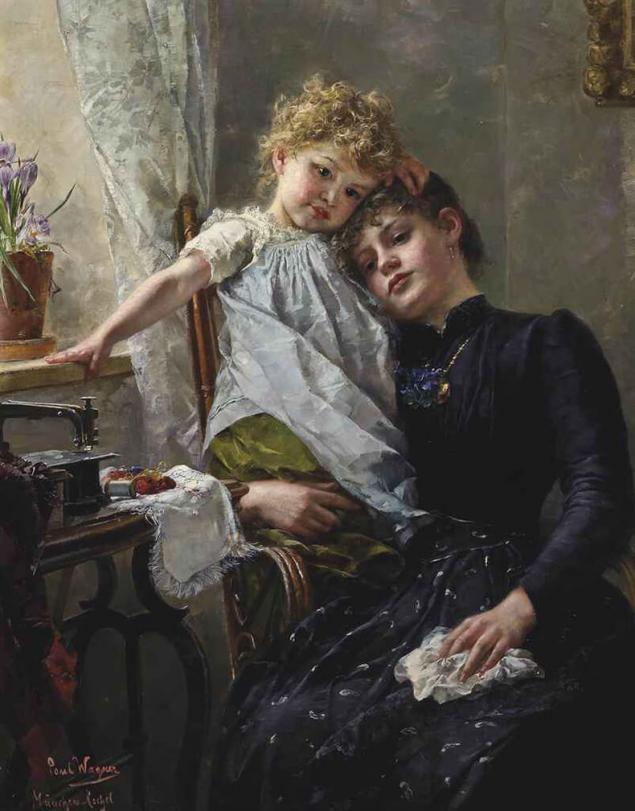
Patriarchy infringe upon women so much that when they had children, they are hungry and a hunger for affirmation, approval, and recognition, was looking for love from their young daughters. This hunger daughter will never be able to satisfy. And yet here is a generation of innocent daughters willingly sacrifice themselves, put themselves on the altar of maternal suffering and starvation in the hope that one day they will be "good enough" for their mothers. They live in childish hope that, if possible, "feeding mother", the mother in the end will be able to feed my daughter. This moment will never come. To satisfy the hunger of their souls can only begin the healing process maternal injury and defending their lives and their value.
We need to stop sacrificing ourselves for our mothers because ultimately, our sacrifice will not saturate. To saturate the mother can only be a transformation that is on the other side of her pain and grief with which she needs to deal with it myself. The pain your mother is her responsibility, not yours.
When we refuse to acknowledge how our mothers can be to blame for our suffering, we continue to live with the feeling that something is not that we are something bad or defective. Because feel shame is easier than to reject it and face your pain from realizing the truth about how they threw or used our mother. So shame in this case is just to protect from pain.
Our inner little girl will prefer shame and humiliation, because it keeps the illusion of the good mother.
(Hold on to the feeling of shame is a way for us to hold on to the mother. Thus the sense of shame becomes a function of the feeling of maternal care.)
To finally let go of self-hatred and self-sabotage, you need to help your inner child to understand that regardless of loyalty to the mother he never kept, remaining small and weak, the mother will not change and will not be the same as expecting a child. We need to find the courage to give their mothers their pain they asked us to carry for them. We give pain when pinning responsibility on those to whom it actually needs, that is, given the dynamics of the situation, an adult mother and not the child. In childhood we are not responsible for the choices and behavior of those around us adults. When we do realize, we might be able to take full responsibility for developing this injury, acknowledging the influence it has had on our lives, so we can act differently, according to their deep nature.
Many women try to skip this step and go right to forgiveness and mercy, than could be stuck. It is impossible to really leave the past behind, if you do not know what to leave behind.
Why is it so hard to admit that your mother was guilty:
Healing maternal trauma – it's about recognizing their right to a life without the dysfunctional patterns laid down in early childhood in dealing with her mother.
It's about to honestly think about the pain in the relationship with the mother for the sake of healing and transformation, which is entitled to every woman. It's about the inner work on yourself to break free and become a woman like you. It's not about the expectations that the mother will finally change or will satisfy that need that she could not meet when you were a child. Just the opposite. While we do not view directly and will not accept the restrictions of his mother and how she hurt us, we're stuck in purgatory, waiting for her approval and as a result, constantly putting his life on hold.
Healing maternal injury is a way to be holistic and to take responsibility for their lives.
Recently, a reader left a comment about how she more than 20 years cured her mother's injury and, although she had to move away from my own mother, its a huge progress in healing has enabled her to build a healthy relationship with his young daughter. She perfectly described the essence of this when he said of his daughter: ‘I can be for her solid support, because I don't use it as emotional crutches.’
Although the healing process maternal trauma can cause conflict and discomfort in order for healing to happen, you need the confidence to go to his truth and power. Adhering to this path, we eventually come to the natural feeling of mercy not only as daughters but also to their mothers, to all women at all times and to all beings.
How are your "annoying" to all and tell all about you
Lost the fire of anger — a direct path to disease
But in this way charity will first need to give their mothers the pain that we absorbed in childhood.
When the mother holds the daughter responsible for their own unexamined pain and blames her for recognition of her suffering because of this there is a disclaimer. Perhaps our mother will never take full responsibility for the pain they unknowingly put us to ease your burden and get rid of the responsibility for their lives. But what's most important to YOU as a daughter fully acknowledged its pain and its relevance to you feel compassion for your inner child. This frees and opens the way to healing and to the opportunity to live as you love and deserve. published
Author: Bethany Webster
Source: 9journal.com.ua/%D0%BA%D0%BE%D0%B3%D0%B4%D0%B0-%D1%81%D1%82%D1%8B%D0%B4-%D0%BD%D0%B0-%D0%B2%D0%BA%D1%83%D1%81-%D0%BA%D0%B0%D0%BA-%D0%BC%D0%B0%D1%82%D0%B5%D1%80%D0%B8%D0%BD%D1%81%D0%BA%D0%B0%D1%8F-%D0%B7%D0%B0%D0%B1/9journal.com.ua/%D0%BA%D0%

Alice Miller describes this dynamic in the "Drama of the gifted child". Mother giving birth to a child, may unconsciously feel like she finally has someone who will unconditionally love her, and begin to use the baby to satisfy his own needs that were unmet from her childhood. Thus the child is the mother's projection of his mother. This puts the daughter in an intolerable situation for her where she is responsible for the welfare and happiness of her mother.
And then a young daughter had to suppress their own needs arising in the process of its development to meet the emotional needs of the mother.
Instead of having to rely on the mother as on a secure emotional base for research, from the daughter, it is expected that she will be the base for your mother. Daughter vulnerable and dependent on his mother to survive, so she has little choice: either to obey and meet the needs of the mother or to some extent to rebel against it.
When a mother gives her daughter adult roles like associate partner, best friend or therapist, she is exploiting her daughter.
When the daughter asked to act as emotional support for her mother, she can no longer rely on his mother to the extent required to meet its own age-specific needs.
There are several options how the daughter might react to this trend:
- "If I'm going to be very, very good girl (docile, quiet, and in no way will need), then the mother finally sees me and will take care of me" or
- "If I'm gonna be strong and I will protect my mom, she'll see me" or
- "If I give your mom what she wants, she will no longer get to treat me like that" and so on.
In this case, mothers compete with their daughters for the right to maternal custody.
Thus they broadcast the belief that maternal care or love is not enough at all. Girls grow up with the belief that love, approval, and recognition are very few, and to earn this, you need to overstrain. Later, in adulthood they attract into your life situations again and again, losing this template. (Many of these dynamics also affect boys, too.)
Daughter, which hung parenthood, deprived childhood.
In this case, the daughter does not get the approval of personal identity, she gets it only as a result of performing a function (to ease her mother's pain).

Mothers can expect from their daughters that they will listen to all of their problems, and even ask your daughters comfort, and care to cope with their fears and worries of an adult. They can expect from daughters, that those to rescue them from problems, to deal with the mess in their lives or with their emotional disorders. Daughter can constantly be involved as a mediator or problem solver.
These mothers transmit to their daughters that they are like mother – a weak, overburdened and unable to cope with life. For my daughter this means that she needs arising in the course of its development, excessively overload the mother, so the child begins to blame himself for the fact of its existence. The girl is therefore in the belief that she is not entitled to its own needs, has the right to be heard or approved as it is.
Daughter, where hung the parental role, can cling to this role and in adult life because of the many secondary benefits. For example, a daughter can get approval or praise only when she plays the role of a warrior in the life of the mother or the mother of the Savior.
A statement of your own needs can threaten rejection or aggression on the part of the mother.
As they grow older daughter may be afraid that the mother is too easy to unsettle, and because of this fear so she can hide from his mother the truth about his own needs. The mother can play this, falling into the victim role and forcing a daughter to consider himself a villain, if she dares to declare their own separate reality. Because of this, my daughter may be an unconscious belief "I am too much. My true self hurts other people. I'm too big. I need to stay small to survive, and to be loved."
While these daughters may take the projection of the "good mother" from their mothers, sometimes they can be projected and the image of a bad mother. For example, this may occur when the daughter is ready to separate emotionally from the mother as an adult. The mother may unconsciously perceive the separation of the daughter as a repeat rejection of her own mother. And then the mother can respond with blatant childish rage, passive insults or hostile criticism.
Often from mothers who have so exploited their daughters, you can hear "My fault." or "Stop being so ungrateful!", if the daughter expresses dissatisfaction with their relationship or trying to discuss this topic. This is the case when my daughter stole the child, imposing a duty to meet the aggressive demands of her mother and then the daughter is attacked because she had the audacity to propose a discussion of the dynamics of the relationship with the mother.
The mother may simply not want to see their contribution to the daughter's pain because it is too painful for her. Often these mothers also refuse to recognize how they impact relationships with their own mothers. The phrase "don't blame your mother" can be used to shame the daughter and to keep her quiet about the truth of their pain.
If we as women are really ready to assert its power, we need to see how our mother really was to blame for our pain in childhood. And as grown women, we ourselves are responsible for healing his injuries.
The one who has the power to cause harm, whether intentionally or not. Regardless of whether mothers are aware of the harm they have caused and want to see it, they are still responsible.
Daughters need to know that they have the right to feel pain and to Express it. Otherwise, the true healing will not happen. And they will continue to sabotage themselves and limit their ability to succeed and thrive in life.

Patriarchy infringe upon women so much that when they had children, they are hungry and a hunger for affirmation, approval, and recognition, was looking for love from their young daughters. This hunger daughter will never be able to satisfy. And yet here is a generation of innocent daughters willingly sacrifice themselves, put themselves on the altar of maternal suffering and starvation in the hope that one day they will be "good enough" for their mothers. They live in childish hope that, if possible, "feeding mother", the mother in the end will be able to feed my daughter. This moment will never come. To satisfy the hunger of their souls can only begin the healing process maternal injury and defending their lives and their value.
We need to stop sacrificing ourselves for our mothers because ultimately, our sacrifice will not saturate. To saturate the mother can only be a transformation that is on the other side of her pain and grief with which she needs to deal with it myself. The pain your mother is her responsibility, not yours.
When we refuse to acknowledge how our mothers can be to blame for our suffering, we continue to live with the feeling that something is not that we are something bad or defective. Because feel shame is easier than to reject it and face your pain from realizing the truth about how they threw or used our mother. So shame in this case is just to protect from pain.
Our inner little girl will prefer shame and humiliation, because it keeps the illusion of the good mother.
(Hold on to the feeling of shame is a way for us to hold on to the mother. Thus the sense of shame becomes a function of the feeling of maternal care.)
To finally let go of self-hatred and self-sabotage, you need to help your inner child to understand that regardless of loyalty to the mother he never kept, remaining small and weak, the mother will not change and will not be the same as expecting a child. We need to find the courage to give their mothers their pain they asked us to carry for them. We give pain when pinning responsibility on those to whom it actually needs, that is, given the dynamics of the situation, an adult mother and not the child. In childhood we are not responsible for the choices and behavior of those around us adults. When we do realize, we might be able to take full responsibility for developing this injury, acknowledging the influence it has had on our lives, so we can act differently, according to their deep nature.
Many women try to skip this step and go right to forgiveness and mercy, than could be stuck. It is impossible to really leave the past behind, if you do not know what to leave behind.
Why is it so hard to admit that your mother was guilty:
- In childhood we are completely dependent on parents, and mothers could not Express their needs;
- Children are biologically designed in such a way that remained loyal to the mother regardless of what she does. The love of a mother is critical to survival;
- Being of the same sex with the mother, we assume she will be on our side;
- We see the mother as a victim of her own unresolved trauma and a culture of Patriarchy;
- Religious and cultural taboos "honor your father and mother" and "sanctity of motherhood", which put in us the sense of guilt and force children to remain silent about their feelings.
- As a victim of parentification, we wrongly interpret the relationship with the mother (love, comfort and security) — this link was created in the atmosphere of shumopodavleniya. (Being small = to love);
- Thus we have created a subconscious Association between love for his mother and self-abasement;
- While your conscious mind may want success, happiness, love and confidence, your subconscious mind remembers the dangers of early childhood, where being a big, spontaneous and true to himself meant the pain of rejection by the mother;
- For subconscious: the rejection of the mother = death;
- For the subconscious: self-sabotage (being small) = safety (survival).
Healing maternal trauma – it's about recognizing their right to a life without the dysfunctional patterns laid down in early childhood in dealing with her mother.
It's about to honestly think about the pain in the relationship with the mother for the sake of healing and transformation, which is entitled to every woman. It's about the inner work on yourself to break free and become a woman like you. It's not about the expectations that the mother will finally change or will satisfy that need that she could not meet when you were a child. Just the opposite. While we do not view directly and will not accept the restrictions of his mother and how she hurt us, we're stuck in purgatory, waiting for her approval and as a result, constantly putting his life on hold.
Healing maternal injury is a way to be holistic and to take responsibility for their lives.
Recently, a reader left a comment about how she more than 20 years cured her mother's injury and, although she had to move away from my own mother, its a huge progress in healing has enabled her to build a healthy relationship with his young daughter. She perfectly described the essence of this when he said of his daughter: ‘I can be for her solid support, because I don't use it as emotional crutches.’
Although the healing process maternal trauma can cause conflict and discomfort in order for healing to happen, you need the confidence to go to his truth and power. Adhering to this path, we eventually come to the natural feeling of mercy not only as daughters but also to their mothers, to all women at all times and to all beings.
How are your "annoying" to all and tell all about you
Lost the fire of anger — a direct path to disease
But in this way charity will first need to give their mothers the pain that we absorbed in childhood.
When the mother holds the daughter responsible for their own unexamined pain and blames her for recognition of her suffering because of this there is a disclaimer. Perhaps our mother will never take full responsibility for the pain they unknowingly put us to ease your burden and get rid of the responsibility for their lives. But what's most important to YOU as a daughter fully acknowledged its pain and its relevance to you feel compassion for your inner child. This frees and opens the way to healing and to the opportunity to live as you love and deserve. published
Author: Bethany Webster
Source: 9journal.com.ua/%D0%BA%D0%BE%D0%B3%D0%B4%D0%B0-%D1%81%D1%82%D1%8B%D0%B4-%D0%BD%D0%B0-%D0%B2%D0%BA%D1%83%D1%81-%D0%BA%D0%B0%D0%BA-%D0%BC%D0%B0%D1%82%D0%B5%D1%80%D0%B8%D0%BD%D1%81%D0%BA%D0%B0%D1%8F-%D0%B7%D0%B0%D0%B1/9journal.com.ua/%D0%BA%D0%

